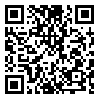Volume 28 - Supplementary
IBJ 2024, 28 - Supplementary: 409-409 |
Back to browse issues page
Download citation:
BibTeX | RIS | EndNote | Medlars | ProCite | Reference Manager | RefWorks
Send citation to:



BibTeX | RIS | EndNote | Medlars | ProCite | Reference Manager | RefWorks
Send citation to:
Bazazkahani H, Izanlou M, Hamedi A, Saeedi Kia A, Azari Y. Relationship Between Internet Addiction and Social Intelligence in Students of Shirvan College of Nursing. IBJ 2024; 28 :409-409
URL: http://ibj.pasteur.ac.ir/article-1-4846-en.html
URL: http://ibj.pasteur.ac.ir/article-1-4846-en.html
Abstract:
Introduction: The Internet is one of humanity's most significant recent achievements. It is among the most accessible forms of media globally and is highly attractive and popular. However, this attraction can sometimes lead to excessive use, a phenomenon now referred to as "Internet addiction." While the Internet offers numerous benefits, its addictive nature can result in various harmful consequences, including academic and psychological issues. Therefore, this study was conducted to investigate the relationship between Internet addiction and social intelligence among Shirvan students at the Shirvan Nursing Faculty.
Methods and Materials: The current research is a cross-sectional descriptive study of the correlation type, conducted with the participation of 200 students studying at Shirvan Nursing School, North Khorasan Province, Iran. The samples were randomly selected from among the students. The research tools included questionnaires to measure informed satisfaction, demographic characteristics, Kimberly Young's Internet addiction, and Tet's social intelligence. After providing the data, the research samples were collected and analyzed with the statistical software SPSS version 19. Statistical tests included independent t-tests, variance analysis, chi-square analysis, and Pearson correlation.
Results: The average score of social intelligence was 24.6 ± 4.2, and the average score of Internet addiction among students was 35.5 ± 12.4. We observed an inverse and significant relationship between Internet addiction and social intelligence (R =- 0.21; p = 0.002). Also, a direct and significant relationship was observed between Internet addiction and academic semesters (R = 0.2; p = 0.003). We also found a significant relationship between parents' living conditions and Internet addiction (p = 0.04), but no significant relationship was found between parents' living conditions and social intelligence (p = 0.52).
Conclusion and Discussion: Our findings indicate an inverse relationship between Internet addiction and social intelligence. Internet addiction is a growing concern that behavioral and educational researchers are increasingly addressing due to its social implications. It is essential for those responsible for education and cultural development to focus on resolving this issue and promoting the responsible use of technology within society.

Methods and Materials: The current research is a cross-sectional descriptive study of the correlation type, conducted with the participation of 200 students studying at Shirvan Nursing School, North Khorasan Province, Iran. The samples were randomly selected from among the students. The research tools included questionnaires to measure informed satisfaction, demographic characteristics, Kimberly Young's Internet addiction, and Tet's social intelligence. After providing the data, the research samples were collected and analyzed with the statistical software SPSS version 19. Statistical tests included independent t-tests, variance analysis, chi-square analysis, and Pearson correlation.
Results: The average score of social intelligence was 24.6 ± 4.2, and the average score of Internet addiction among students was 35.5 ± 12.4. We observed an inverse and significant relationship between Internet addiction and social intelligence (R =- 0.21; p = 0.002). Also, a direct and significant relationship was observed between Internet addiction and academic semesters (R = 0.2; p = 0.003). We also found a significant relationship between parents' living conditions and Internet addiction (p = 0.04), but no significant relationship was found between parents' living conditions and social intelligence (p = 0.52).
Conclusion and Discussion: Our findings indicate an inverse relationship between Internet addiction and social intelligence. Internet addiction is a growing concern that behavioral and educational researchers are increasingly addressing due to its social implications. It is essential for those responsible for education and cultural development to focus on resolving this issue and promoting the responsible use of technology within society.

| Rights and permissions | |
 |
This work is licensed under a Creative Commons Attribution-NonCommercial 4.0 International License. |







.png)
